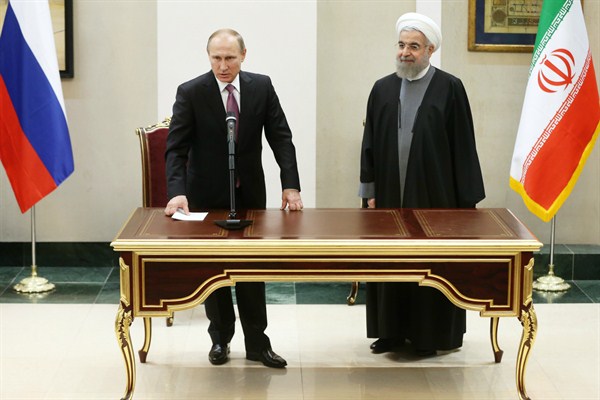For years, many Western and even Russian analysts expected that a resolution of Iran’s nuclear dispute with the West would weaken ties between Tehran and Moscow. However, in the months since July’s nuclear deal, relations between Iran and Russia have strengthened, while Tehran’s ties with the West have stagnated. The Syrian war, as well as skillful Russian diplomacy, have short-circuited, at least for now, any anticipated Iranian geopolitical reversal after the nuclear deal.
Russian President Vladimir Putin’s visit to Iran in late November, the first visit by a Russian president since 2007, was the latest indication of healthy ties. Although it did not produce any breakthrough deals or decisions, it did confirm the strength of the current Iran-Russia alignment. That was made even clearer last week, when a spokesman for Iran’s atomic energy organization announced that Russia would soon begin building two nuclear reactors in Iran.
The formal reason for Putin’s trip was to attend a meeting of the Gas Exporting Countries Forum in Tehran, but he also met with Iran’s Supreme Leader Ali Khamenei and President Hassan Rouhani. In their statements, Putin and his Iranian partners readily denounced regional terrorism but also jointly criticized U.S. sanctions on their countries and Western demands for regime change in Syria. Their negotiating teams confirmed several economic deals that had been in the works, but also announced a few new ones, including a $5 billion Russian line of credit to Iran and joint transportation and energy projects.

